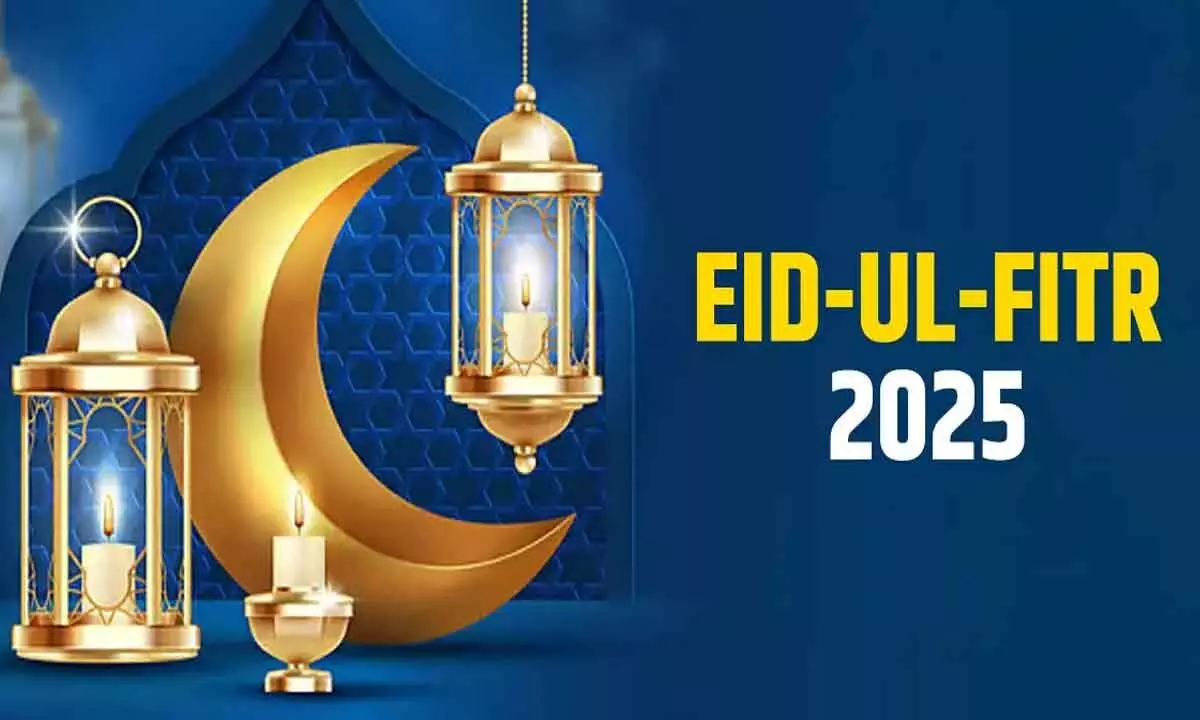Eid-ul-Fitr 2025: Date, History, Significance, and Celebrations

Eid-ul-Fitr is a joyous Islamic festival that signifies the conclusion of Ramadan, a sacred month of fasting and spiritual reflection. It is a time for gratitude, unity, and heartfelt celebrations with family and friends.
Eid-ul-Fitr, also called the "Festival of Breaking the Fast," is observed on the first day of Shawwal. The occasion represents renewal, generosity, and communal harmony. The day begins with special prayers, followed by festive meals and family gatherings. A key tradition is Zakat-al-Fitr, ensuring inclusivity for the less fortunate. Children receive Eidi (money or gifts), adding joy to the occasion. The festival emphasises faith, gratitude, and strengthening community ties.
Eid-ul-Fitr 2025 Date
The date of Eid-ul-Fitr is determined by the Islamic lunar calendar and falls on the first day of Shawwal, the tenth month. Since moon sightings differ by location, Eid is expected to be celebrated on March 30 or 31 in Middle Eastern and Western countries, while in India, Pakistan, Bangladesh, and other South Asian nations, it is likely to fall on March 31 or April 1, 2025.
History and Significance
Eid-ul-Fitr holds great historical and religious importance. It marks the conclusion of Ramadan, a month of fasting, prayer, and self-discipline. The festival also commemorates the revelation of the Holy Quran to Prophet Muhammad, making it a period of deep spiritual reflection and devotion.
The name "Eid-ul-Fitr" translates to "Festival of Breaking the Fast," symbolising gratitude, renewal, and unity among Muslims. It serves as an occasion to express thanks for the strength to complete Ramadan and seek blessings for the future.
Eid Celebrations and Traditions
The day begins with a special congregational prayer called Eid Salah, performed in mosques, Eidgahs, and open grounds. Worshippers thank Allah for His blessings and pray for prosperity and well-being.
Zakat-al-Fitr: A Tradition of Charity
A key aspect of Eid-ul-Fitr is Zakat-al-Fitr, a mandatory charitable donation given before the Eid prayer. This ensures that everyone, regardless of financial status, can partake in the celebrations. In addition to Zakat-al-Fitr, many Muslims also give Zakat, which requires donating 2.5% of one’s wealth to those in need.
Festive Meals and Gatherings
Eid is synonymous with family reunions and lavish feasts. Homes are filled with the aroma of traditional dishes like Biryani, Haleem, Nihari, Kebabs, and Sheer Khurma (a sweet vermicelli dessert). Friends and neighbours exchange sweets and greetings, strengthening community bonds.
Eidi: A Special Treat for Children
One of the most exciting traditions for children is Eidi, where elders give them money and gifts as tokens of love and blessings. This cherished custom adds to the joy of the occasion.
The Spirit of Eid
Beyond the festivities, Eid-ul-Fitr embodies values of faith, generosity, and togetherness. The day serves as a reminder to spread happiness, nurture relationships, and appreciate the blessings of life. It fosters a sense of community and reinforces the importance of compassion and gratitude.


